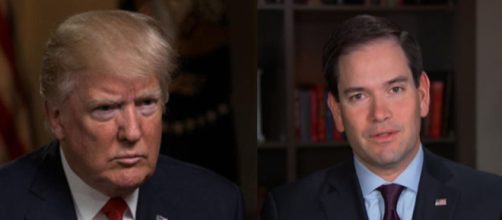Earlier this month, Donald Trump signed the Tax Cuts and Jobs Act of 2017 into law, marking the biggest overhaul in the tax code in decades. While Republicans promoted the bill as a tax cut for middle class earners, one high-profiled conservative senator decided to say what many already knew.
Rubio on tax bill
On economics and taxes, Republicans and Democrats are on the opposite ends of the spectrum when it comes to their ideology and policy. For decades, both parties have fought it out over how to move forward, and with Donald Trump in office with a Republican-majority in both the House of Representatives and the Senate, it was only a matter of time before action was taken.
Though the president and Congress clashed at times, they were able to get on the same page heading into the holiday season and pass the bill in question. Commenting on the Tax Bill was Florida Sen. Marco Rubio who broke from the narrative pushed by the president, as reported by CBS News on December 29.
The GOP tax bill "probably went too far" in helping corporations, Sen. Marco Rubio told Florida's News-Press in interview published Friday https://t.co/zLT1SvU9ns pic.twitter.com/v1qKxd41Ge
— CBS News (@CBSNews) December 29, 2017
"I thought we probably went too far on corporations," Marco Rubio said of the tax bill during a recent interview, admitting, "If I were king for a day, this tax bill would have looked different." "You're going to see a lot of these multinationals buy back shares to drive up the price," Rubio predicted, while pointing out, "They're sitting on historic levels of cash, to pay out dividends to shareholders."
Instant backlash
After Marco Rubio's remarks about the GOP tax bill made the rounds, Twitter users made sure to chime in.
"@marcorubio hopes we will forget in 5 years how he voted on the #TaxScamBill Pro tip: We won’t," one tweet read.
Yeah, @marcorubio, ya think? Instead of voting for that horrific #GOPTaxBillScam, you should have served your constituents, you fucking coward, and voted against it. It isn't like companies made a secret of what they would do. #economy
— Southern Muse (@MuseOfTheSouth) December 29, 2017
@marcorubio Should have voted NO and taken the high road. Had your chance! Now you have put yourself in the MUD!
— Elaine petrucci (@Elainepetrucci1) December 29, 2017
@marcorubio hopes we will forget in 5 years how he voted on the #TaxScamBill Pro tip: We won’t.
— Bill Shepherd (@shepherd1230) December 29, 2017
"Should have voted NO and taken the high road.
Had your chance! Now you have put yourself in the MUD!" another tweet added. "You can say what you want but your name is on the #Trumpanomics bill, it's your legacy," another Twitter user wrote.
BINGO‼️ @marcorubio then one must really wonder WHY the fuck did you vote for the tax bill?!? Oh wait... could it be because you’re just a puppet... don’t try and play both sides now you voted for the bill... https://t.co/ANE8ZqEojk
— Edgar H. Campa (@TheEdgarCampa) December 29, 2017
@marcorubio now you have voter remorse? You had, continue having and will always have grape seed sized balls. Once 2018 cycle comes around and GOP starts to become minority, your vote of pay for play donors will hurt you even more. @ananavarro @Lawrence @SenatorCollins @RWPUSA
— JoK (@99MorningCoffee) December 29, 2017
@marcorubio Thanks for that terrific insight on the tax bill going too far. 1st That insight could have been a little more useful BEFORE you voted for it. 2nd, you just said what everyone with more than a high school education already knew.
— JaimeC (@jaimedollar) December 29, 2017
"Instead of voting for that horrific #GOPTaxBillScam, you should have served your constituents, you fu**ing coward," an additional tweet pointed out.
"Then one must really wonder WHY the fu** did you vote for the tax bill?!?" another tweet asked. Though the Republican Party, besides Rubio, continues to praise the tax bill, non-partisan studies have shown that while the middle class will see a short-term tax break, those at the top of the income ladder, as well as corporations, will see the biggest benefits. In additional, the bill is expected to add close to $1.5 trillion to the national debt over the next decade.

